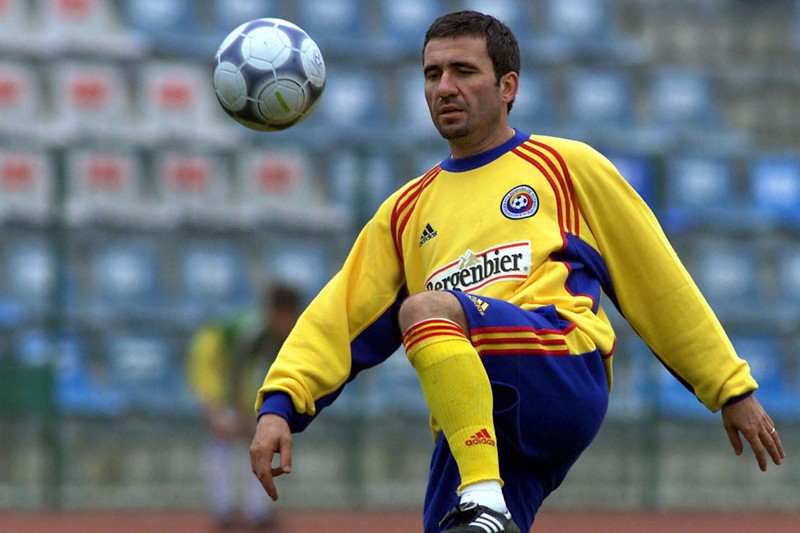It is hard to name many players who have sandwiched a quick jaunt at Brescia between spells at Real Madrid and Barcelona. It is even more bizarre to think that a player would leave Real Madrid for a newly promoted Serie A club, then endure relegation to Serie B, and only return to La Liga once promotion was secured and the Anglo-Italian Cup was won. Nevertheless, in the summer of 1992 the 27-year-old Gheorghe Hagi did just this, swapping Spain for Italy. Although not completely successful, this brief period allowed him to acquire cult status with the Biancazzurri.
Managing to attract famous players is something of a speciality for Brescia. Roberto Baggio, Pep Guardiola, Andrea Pirlo and Luca Toni have all walked the lush green boards of the Stadio Mario Rigamonti stage. Hagi and a few fellow Romania internationals started this trend, which would have made Brescia the hipsters’ club of choice (if hipsters had existed in the early 1990s).
While flooding a struggling Italian club with Romanian players might seem like an odd choice now, this was the era when the foreigner rule restricted the movement of players. Teams were allowed just three foreign players on the pitch at the same time and other Serie A clubs were having success employing the same strategy. Milan had the three Dutchmen in Marco van Basten, Ruud Gullit and Frank Rijkaard, while Inter had had the German equivalent in Lothar Matthäus, Andreas Brehme and Jürgen Klinsmann.
So Brescia looked east to Romania for inspiration. The club’s manager, Mircea Lucescu, had played for Romania for 13 years and managed them for five, so he was the perfect man to establish a little Romania in northern Italy. Hagi was the coup, there was no doubt of that, as club president Luigi Corioni struck an ₤8bn (lira) deal with Real Madrid to bring in the midfielder on the same wages he had received in Spain. He joined fellow Romania internationals, Dorin Mateut, who came from Real Zaragoza, Florian Raducioiu, who arrived from Hellas Verona, and Ioan Sabau, who was signed from Feyenoord.
Hagi’s two seasons with Brescia were mixed. He was sent off in the first league game of the season and the club were relegated to Serie B after the last – a relegation playoff against Udinese. Hagi had scored five goals in what was an unimpressive campaign. He was fined for being late for training; he argued with the coach about his media responsibilities; and, even worse, he had been lazy on the pitch.
Lazy he may have been, but disloyal he was not. Claiming he was “not a coward or a traitor,” Hagi stayed with Brescia and became a star for them. Perhaps he had relaxed too much in his first season in Italy, thinking that Serie A would be easy after Real Madrid, but he raised his game and had a field day in Serie B.
In the 1993-94 season, the Bresciani really saw the “Maradona of the Carpathians” as his incredible passing range tore holes in defenses. His confidence grew, he showed off his ability to skip past defenders beautifully and he scored nine times in Serie B – some way short of Oliver Bierhoff and Gabriel Batistuta in the scoring charts but enough to take Brescia back to the top flight. Hagi also won his only trophy for Brescia in 1994, when they beat Notts County 1-0 in front of 17,185 fans at Wembley to triumph in the Anglo-Italian Cup.
Hagi’s improved form put him back on the map and, when he captained a Romania team that captured the world’s imagination at USA 94, Europe’s elite clubs came knocking again. Hagi said arrivederci to Italy as Johan Cruyff stepped in to sign him for Barcelona, the newly crowned La Liga champions. With that, his brief, turbulent and unforgettable time in Italy came to a close. Hagi had been lazy and petulant at times while playing for Brescia but, by God, he was good.
(The Guardian)
